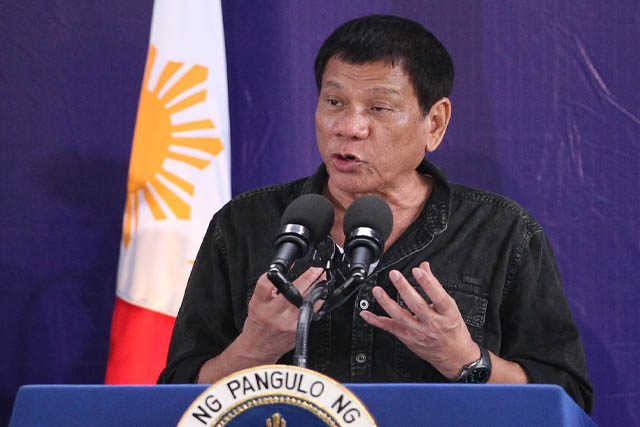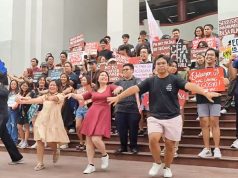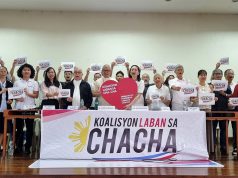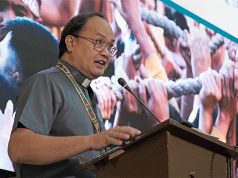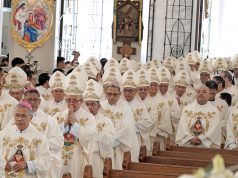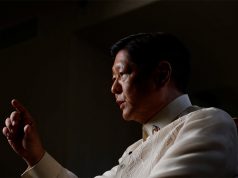Why does the Constitution provide time limits, Congressional action and recourse to the Supreme Court when Martial Law is imposed? The answer is simple but fundamental: so that this very restrictive measure will be recorded in the halls of our great democratic institutions and, if warranted, immediately corrected or even stopped.
More importantly, so that the freedoms protected by the Constitution will not be suppressed by men/women in high government positions. Public accountability is not suspended, much more halted, by the imposition of martial law.
On May 28, 2017, President Duterte was reported saying, in remarks in Jolo, Sulu: “Until the police and the armed forces say the Philippines is safe, this martial law will continue. I will not listen to others. The Supreme Court, Congress, they are not here.”
This is a disturbing pronouncement. The big questions now are: Is the stability of the country being endangered given this vocal expression by the President of an intent to defy the rule of law? We must remember that Supreme Court decisions are part of the law of the land. The President took an oath to “faithfully and conscientiously” “preserve and defend the Constitution, execute its laws and do justice to every man”. Does this “strong” and angry rhetoric in fact reveal a weak-kneed leadership disposed to panic and now showing signs of being out of control?
As for the Armed Forces and its members, will they now face once more the dilemma of deciphering whether they are listening to legitimate directives or to an emotional knee-jerk reaction of a President advocating a course of action clearly discordant with the Constitution? Is the administration exhibiting signs of crumbling or deteriorating into autocratic rule? Tough questions, but they must be asked and answered.
Many members of Congress, meanwhile, look more and more like rubber-stamps. Can we even expect anything from them? As of now, Congress, through its leaders, appears inclined to abdicate its duty to convene. The Speaker of the House and the Senate President are not keen on having an official session to discuss the pros and cons of Martial Law. When Ferdinand Marcos imposed Martial Law in 1972, the senators then – Salonga, Roxas, Mitra, Kalaw and Laurel went to the Senate though it was padlocked and closed. They were not able to enter. Compare this to many of the present representatives and senators who, despite Congress being open, seem to just surrender to the imposition of Martial Law and say “don’t bother about any special joint session, it is useless.” What a let-down.
The convening of the House of Representatives and the Senate is not principally for the politicians. It is for the people. It will give the public an invaluable opportunity to hear and understand the position and recommendations of representatives, senators and important high officials who are knowledgeable about the situation. It is a sobering process where the public’s growing apprehension can be alleviated because questions can be asked, facts can be revealed, and responses can be explained. It is a venue for enlightenment. We have the right to know, to see our great institutions work for us. But it seems that this will not happen, at least institutionally as an official act of Congress.
And in so far as the Supreme Court is concerned. Are the SC justices or at least some of them, who heard of this news, cowering in fear, ready to be subservient to the President in the face of this clear threat? Sad to say, there is a perception, rightly or wrongly, that most of the SC justices vote in favor of the political “elite” or people with political influence – the Marcoses on the Marcos burial, Imelda on her corruption case, Imee on the Trajano-death-damage case, Erap Estrada on absolute pardon, Gloria Macapagal Arroyo on her plunder case, Enrile on the issue of bail, Binay on the condonation-doctrine case, Cojuangco on the coconut levy, Singson on his congressional seat, and others. Even the Court of Appeals acquitted Napoles in the illegal detention case and the Sandiganbayan acquitted Bolante on the agri-fertilizer case . The perception is that an ordinary Juan de La Cruz has no chance of winning a case against these people, much more a President or former President, though meritorious the case may be. I hope this perception is immediately corrected.
And the next important questions are: What is THE EXIT PLAN of the Duterte Administration in this Martial Law adventure? We, the people, do not know. Or is there an EXIT PLAN at all? Based on the previous presidential statements, it might even be an EXPANSION PLAN to include Visayas and Luzon. But other than that, we, the people, are left in the dark. This is not good. We have the right to know.
Not having an exit plan is most portentous. It will open the floodgates to abuse. Remember: this country had only one experience of Martial Law in the second half of the last century and that horrible period under the Ferdinand-Marcos-regime destroyed the lives of many people, and our democratic institutions and economy.
We have to be vigilant. Let us hope that the great institutions created by the Constitution will truly be instruments of effective checks-and-balances.
In the meantime, as I have always said, let us not just stand idly by and say and do nothing. Let us make our sentiments known. And to all, especially the millennials who have not experienced or seen the horrors of Martial Law, now is the time to be intelligently skeptical on Martial Law’s imposition and to question courageously the powers-that-be in any platform available. That is good, nay, vital and necessary, for democracy to survive.
Let us heed the words of encouragement of Chief Justice Maria Lourdes Sereno on May 26, 2017 at the Ateneo graduation rites, just two days before the President made his defiant statement:
Know that being a person for others and standing for human rights, justice, and democracy are one and the same. To stand for human rights is to value others’ freedoms as much as you value your own. To stand for justice is to oppose any attempts to value one group’s freedoms more than those of others. To stand for democracy is to love your country and your people so fully that you will act to ensure democratic processes are followed despite great personal cost. To stand for all of these is to sacrifice yourself so that others may know freedom, safety, and all the fullness of life. Know that you are not alone. You will not be alone. Have the courage to stand.

